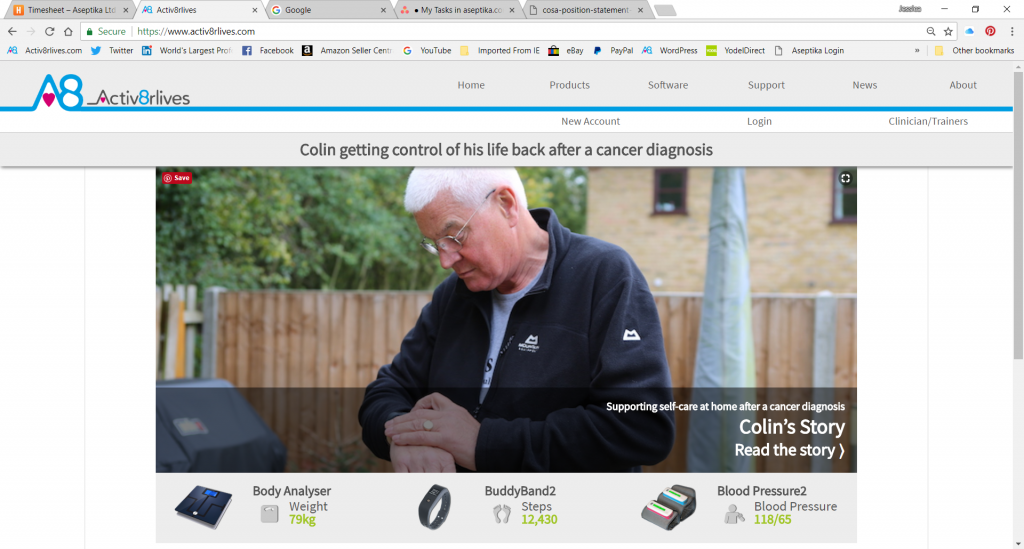The recent COSA Positional Statement on Exercise in Cancer Care produced by the Clinical Oncology Society of Australia (COSA Council) outlined three major recommendations for standard cancer care:
“Exercise to be embedded as part of standard practice in cancer care and to be viewed as an adjunct therapy that helps counteract the adverse effects of cancer and its treatment;
All members of the multidisciplinary cancer team to promote physical activity and recommend people with cancer adhere to exercise guidelines; and
Best practice cancer care to include referral to an accredited exercise physiologist and/or physiotherapist with experience in cancer care.”
This just goes to show how the pioneering work already underway by Hunts Community Cancer Network (HCCN) in Huntingdonshire as being highly innovative and meeting all these recommendations provided by COSA and other international studies.
One such case study in Huntingdonshire illustrates the high standard of cancer care that includes physical activity. View Colin’s story here.


Colin is a tall, athletic 73-year old with an inspiring lust for life and good humour. Two years ago he was diagnosed with prostate cancer, which has spread into his bones and is currently incurable.
“HCCN operate a programme of getting active and I joined their circuit training. There is recognition in the medical profession that cancer patients keep healthy for longer if they stay active. HCCN has been designed as a charity to fill the gaps that the NHS can’t afford.
I do cardio-vascular exercise, I live a normal, healthy socially active life. It’s given us back our lives, and with all the walking, my dog’s the fittest dog in Cambridgeshire!
Using the Activ8rlives monitoring devices, I can track my weight, which is really important for cancer patients, and I can keep a record of my wellbeing. This can all be transmitted to the clinicians – if they see your steps are significantly lower, or your weight is fluctuating wildly, then it’s worth checking if something’s wrong.
I think the whole process should be rolled out more widely, it’s given me the knowledge and support structure to control my own situation.”
